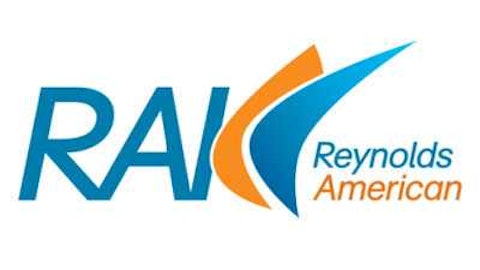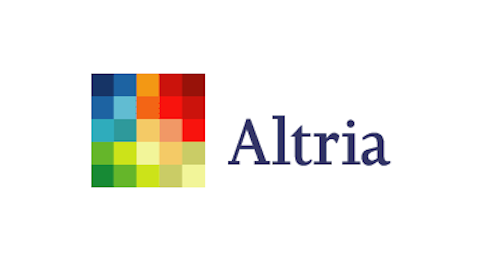Peter Lynch once said that a great company to invest in would make a product that customers have to keep buying. He went further to say if the product was addicting, that was even better. He mentioned the old Philip Morris as one of these great opportunities. Today, I’m sure Philip Morris International Inc. (NYSE:PM) would catch his eye. The things Lynch liked the most about the old school company are now almost entirely tied up in Philip Morris International. He liked that real growth was found overseas, the product is addictive, and there are less legal issues with tobacco internationally. For investors willing to overlook the potential health issues, this sounds like his definition of the perfect stock.

The Difference Between Here And Abroad
The cigarette industry in the U.S. is dominated by a few heavyweights that have well known brands. The good news for stockholders is these brands have great pricing strength, and the addictive nature of cigarettes keeps volumes from falling too quickly. Companies like Altria Group Inc (NYSE:MO), Reynolds American, Inc. (NYSE:RAI), and Lorillard Inc. (NYSE:LO) make up the domestic cigarette market. Each of these companies generate tremendous cash flow, and pays a generous dividend.
The bad news of course is that domestically there are both huge legal obligations and a tremendous amount of education and products to try and help smokers quit. In addition, the domestic cigarette market consistently posts declining volumes. Manufacturers have to either improve their margins or take market share in order to increase profits.
The international market is a different story. Overseas, there is still opportunity for real volume growth along with price improvements. While there is education about smoking’s risks, the amount of public outcry is different. This environment is what makes Philip Morris such a different investment from their peers.
Marginally Different
One big challenge that Philip Morris International Inc. (NYSE:PM) faces is also a huge opportunity in the future. Since the company is still expanding and increasing their market share, Philip Morris operates on much smaller margins than their domestic counterparts.
In fact, in the current quarter, Reynolds American, Inc. (NYSE:RAI) led the way with an operating margin of 34.6%. Lorillard and Altria Group Inc (NYSE:MO) followed in the domestic race with margins of 30.63% and 28.28%, respectively. Philip Morris International showed an operating margin of just 17.89%. As you can see, today Philip Morris International Inc. (NYSE:PM)’s margin is greatly compressed because of expansion costs and trying to keep the costs to the consumer low. However, over time the company should be able to increase their margins to a level closer to their domestic counterparts, which would dramatically improve earnings.
The Problem Won’t Last Forever
The amount of negative press around the European economy seems to be a constant flood of information. In a way, this amount of negative publicity reminds me of the news media’s treatment of the Great Recession in this country. While this is an issue in the short-term, overseas economies will improve over time, and Philip Morris International stands to benefit.
In the current quarter, 35.32% of revenue and 30.24% of Philip Morris International Inc. (NYSE:PM)’s earnings came from the European Union. When more than one-third of your revenue falls by 8.16% year-over-year, it’s hard for the company to report huge growth. By comparison, the company’s Eastern Europe, Middle East and Africa division saw revenue increase 10.43%. There was strength to a lesser extent in the rest of the world as well, with Asia revenue up 7.56%, and Latin America & Canada revenue up 1.85%. Clearly, if the European Union had reported better results, Philip Morris International’s overall numbers would have drastically improved.
The Yield Isn’t Enough
A common misconception among novice investors is that Philip Morris International doesn’t pay a high enough yield. They would argue that if Altria can afford 5.18%, Reynolds American pays 5.47%, and Lorillard pays 5.76%, then Philip Morris International at 3.7% isn’t enough.
The problem is this assumption doesn’t pay attention to the payout ratio behind these yields, or the future growth in earnings at each company. In the current quarter, Altria’s free cash flow payout ratio was 80.22%, and Reynolds American’s payout was 229%. Given that both companies are expected to grow earnings by about 7%, there isn’t the same chance for growth in their dividend that exists elsewhere.
Lorillard seems to offer the greatest competition for investing dollars to Philip Morris International. Lorillard’s 5.76% yield is backed by a 67.46% free cash flow payout ratio. In addition, Lorillard is expected to grow earnings by about 9%, compared to 11.6% at Philip Morris International.
The key difference between the two is Philip Morris International’s focus overseas. While Lorillard’s current yield wins, their domestic focus ultimately loses the long-term race. Philip Morris has the longer growth track because of their international focus. Philip Morris’ results are being held down by problems in Europe, but when these problems fade, this stock could explode.
The article When Europe Recovers This Stock Will Explode originally appeared on Fool.com and is written by Chad Henage.
Copyright © 1995 – 2013 The Motley Fool, LLC. All rights reserved. The Motley Fool has a disclosure policy.




